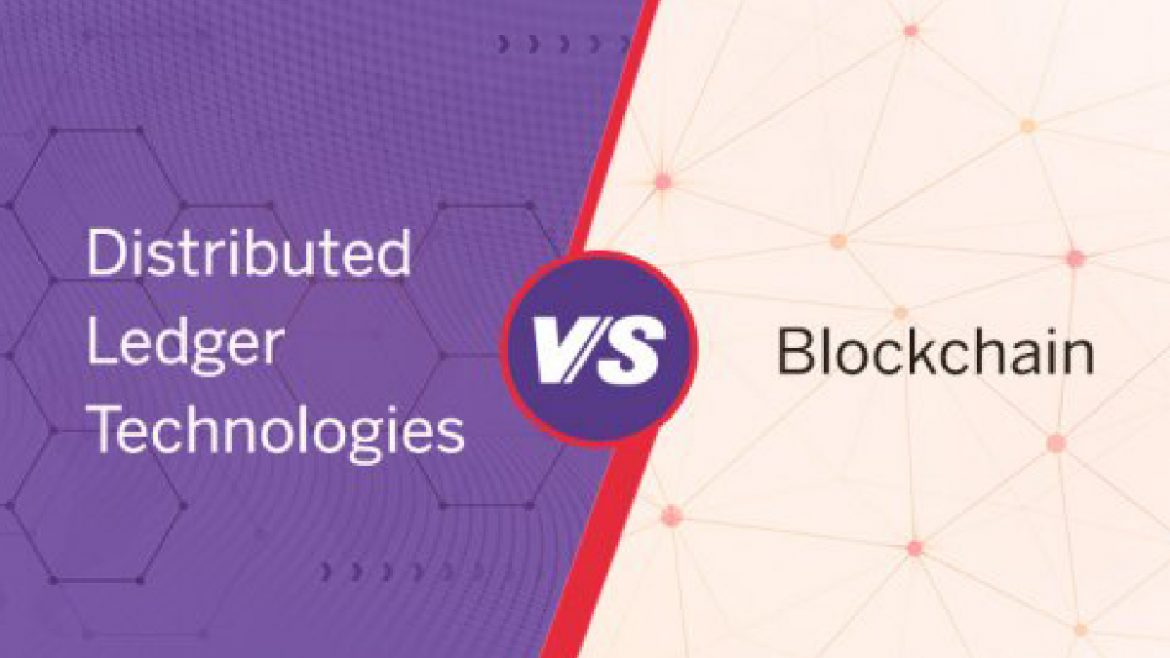The terms Distributed Ledger Technology and Blockchain Technology have been used interchangeably in the past decade, which is why people may not realize that there is actually a difference between the two. Curious? Let’s explore the two technologies and point out the key differences.
[wlm_private “Crypto Trader Pro – Monthly|Crypto Trader Pro – Yearly|Crypto Trader Pro (Lite)”]
Distributed Ledger Technology
At its core, a distributed ledger is just a database. What makes a DLT different from other types of databases is its ability to synchronize and share digital data across borders to multiple entities. There is no central administrator or any single fail point that could destroy the ledger. Once a transaction reaches consensus and is added to the ledger, it is timestamped and given a unique cryptographic signature. And depending on the DLT in use, the transaction itself may be visible however, the actual contents of the transaction may be encrypted and only visible to those with permissions or private keys.
Blockchain Technology
Blockchain was birthed alongside Bitcoin in 2009. To be clear, a blockchain is a specific type of distributed ledger with its own set of rules or smart contracts, features and operations. For example, the Bitcoin blockchain and the Ethereum blockchain are two different blockchains but both uses Distributed Ledger Technology. See where we’re going with that?
Blockchains have their own set of cryptographic hashes that are accepted in sequential order on the chain. Blockchains use consensus models where new blocks are added to the chain whereas distributed ledgers do not require such a chain because it is the underlying technology, not the product of the technology. Think of it this way: If DLT = the alphabet, then A,B,C… = blockchains.
In essence: Every blockchain is a distributed ledger, but not every distributed ledger is a blockchain.
Now, if you’re running a business, do you use blockchain or Distributed Ledger Technology?
The answer to this really depends on the business needs. With so many use cases surrounding DLT and blockchain, it would be nearly impossible to present all theoretical scenarios. The question is, do you want to run your business ledger needs on an existing blockchain or do you want to launch your own? That’s what it boils down to.
There are already existing blockchains that cater to businesses for work efficiencies, tracking, billing and anything that requires record-keeping. But if you are considering your own token to be launched with your other business initiatives, then you might want to consider diving straight into DLT and developing your own blockchain.
One other thing; nearly all business has a need for a simple database that is shared with a select few other parties. This can be handled by a distributed ledger, but if you can solve your business’ needs using a central database a blockchain may not a practical option.
Blockchain technology becomes relevant when multiple businesses need to maintain and share data especially when trust is an issue. That’s not to call anyone crooks and thieves, but mistakes or shady bookkeeping happens. If you are tracking items from womb to tomb, a blockchain is really handy in that situation. Do you want to rely on a central party to store and validate transactions or do you want consensus from a group to validate the transactions to be true?
Blockchain technology allows for tokenization and smart contracts layered on top of Distributed Ledger Technology. As mentioned earlier, the choices for business are to stick with the status quo, adopt an existing blockchain, or use DLT to develop your own private or public blockchain for business use. If you’re in partnership with other firms with a need to share data or digitally “speak” to each other, then blockchain technology might be worthy of further investigation.
Disclaimer
Content provided by CryptoTraderNews is for informational purposes only, and should not be construed as legal, tax, investment, financial, or other advice. All information is of a general nature. As always, there is risk with any investment. In exchange for using our products and services, you agree not to hold CryptoTraderNews Pro, its affiliates, or any third party service provider liable for any possible claim for damages arising from decisions you make based on information made available to you through our services.
[/wlm_private]
Want to read the rest of the article? Join our pro-membership and receive all of the following:
✅Access to ALL content.
✅Access to the CTN editorial staff.
✅Access to our CTN trading dashboard.
✅Access to our exclusive telegram channel where all our pro-members and editorial staff are in.
✅Ability to request content/research material!
